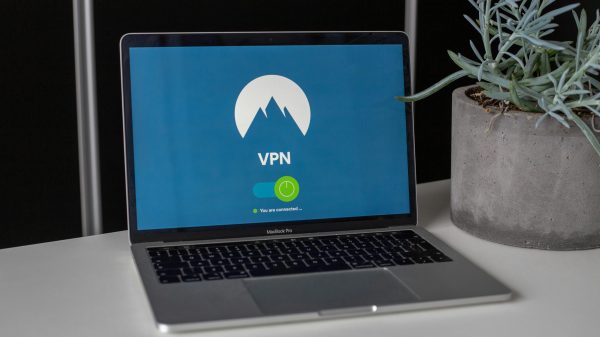In the vast and ever-evolving landscape of academic publishing and open access, tools that bridge the gap between demand and availability are priceless. The SLUM (Sci-hub, LibGen, Unpaywall Monitor) Dashboard is one such tool, serving as a centralized hub to track and monitor access to popular research and academic resource platforms. Whether you’re a student, researcher, or just an enthusiastic learner, knowing how to make the most of SLUM can save you immense time and effort.
TL;DR
The SLUM Dashboard allows you to track Sci-Hub, Library Genesis (LibGen), Unpaywall, and other resource availability tools efficiently. It offers real-time status checks, link updates, and domain monitoring. This article walks you through actionable tips to use SLUM more effectively, helping you optimize your search for academic resources. With the right practices, SLUM becomes an indispensable asset for research accessibility.
What Is the SLUM Dashboard?
The SLUM Dashboard is a comprehensive, user-friendly interface designed to help you keep track of vital tools like:
- Sci-Hub – for accessing paywalled journal articles,
- Library Genesis (LibGen) – for locating academic books, textbooks, and articles,
- Unpaywall – for locating legal, open-access versions of scholarly publications.
The dashboard’s core purpose is to help users determine which domains and services are currently operational, mirrored or down, and to provide updated links to active sources. In a climate where these services are frequently under threat or shifting domains to avoid takedowns, the SLUM Dashboard offers consistency.
Why SLUM Dashboard Is Worth Your Attention
Academic publishers often place research behind expensive paywalls. Despite increasing awareness and movements toward open access, many vital papers remain locked. SLUM Dashboard acts as a reality check for what’s working, what’s blocked, and what alternatives exist. It can become an essential part of a researcher’s daily toolkit, particularly when you need access to resources without wasting time:
- Is Sci-Hub accessible via its current mirror?
- Is LibGen returning results consistently today?
- Which Unpaywall integrations are providing access?
If you’ve ever lost valuable hours trying to figure this out, you’ll appreciate the simplicity SLUM brings to the equation.
Key Features and How to Use Them Effectively
Let’s break down some of the main features of the SLUM Dashboard—and how to use each one like a pro.
1. Real-Time Domain Monitoring
Services like Sci-Hub and LibGen are frequently operating on alternate domains due to legal battles and ISP blocks. The dashboard regularly checks:
- Uptime for top mirrors
- SSL certificate validity
- Redirect chains
Tip: Bookmark the dashboard and check it before clicking a Sci-Hub link shared in forums or academic chat channels. It’ll save you from following broken links.
2. Aggregated Service Status Panel
This feature quickly shows you a bird’s-eye view of what’s online and functional:
- Green for fully operational
- Yellow for intermittent service
- Red for down services
This code-color simplicity lets you know what’s reliable right now, and what should maybe be left for another time.
3. Automatic Redirect Recommendations
In case a popular mirror goes offline, SLUM doesn’t just show you it’s down; it also suggests alternative working mirrors.
Tip: Use SLUM to update your personal bookmarks or browser extensions like Sci-Hub Now with the most reliable mirror links listed.
4. Historical Availability Data
Did you know SLUM logs the uptime history of various domains? Ever wondered if a link is just down now or completely abandoned?
This becomes especially handy when preparing for semesters or conferences. You can plan based on the reliability of certain services over time.
Sci-Hub Specific Tips
Sci-Hub is arguably the most popular academic paper piracy resource. Here’s how to optimize your usage of it via SLUM:
- Always check domain status before diving in—there are many phishing clones.
- Use DOIs whenever possible. Sci-Hub handles them cleanly and quickly.
- Copy-paste rather than click strange links—SLUM verifies what’s functional.
Bonus tip? Some users run a local server of Sci-Hub if they have tech skills, but SLUM helps you avoid needing to take such extreme steps by ensuring official mirrors are accessible.
Using SLUM with Library Genesis (LibGen)
LibGen’s mirrors are diverse and often region-specific. SLUM helps publicize which database links are active and searchable at any given time. Remember, not all LibGen mirrors house the same categories of content (fiction, scientific articles, comics, etc.).
When searching a specific genre, SLUM hints at the most appropriate mirror, which can optimize your time significantly.
Pro Tip: Use “LibGen.rs” or “LibGen.li” depending on the status listed on SLUM. Avoid Google searches that might return malware-cloaked imposters.

Beyond the Big Three: Other Integrations
SLUM doesn’t stop at Sci-Hub and LibGen. It also tracks tools like:
- Z-Library
- Anna’s Archive
- ResearchGate Status integration
With rapidly evolving blacklists and domain bans, having them all in one easy-to-scan location is invaluable, especially when certain governments (or institutions) begin blocking IP access to these domains.
Tips for Staying Secure While Using SLUM
As with any tool that interacts with grey-area services, follow good safety practices:
- Use a VPN if your country restricts access to any of these tools.
- Run malware and anti-trackers in your browser.
- Refrain from entering personal information into any unexpected login prompts, especially when redirected.
The SLUM Dashboard itself doesn’t host pirated content; it just provides links to existing domains. It’s essentially an index—one that saves your time and shields you from shady redirect traps.
Conclusion: SLUM as a Daily Research Companion
The academic world can sometimes feel sealed behind a paywall fortress, and while there are ethical debates around these resources, accessibility remains a key concern for global education. The SLUM Dashboard gives you a rational, safe, and informed way to navigate this landscape of fluctuating URLs and transient resources.
Whether you’re writing a thesis, brushing up for exams, or diving into original research, using SLUM equips you with a smart access strategy that saves time and reduces frustration. It brings clarity to a chaotic domain of pseudo-legal access, ensuring you never have to guess which mirror will work today or waste time on dead links.
Make SLUM part of your academic toolbox. You’d be surprised how much it silently improves your productivity in a world of blocked access and broken bookmarks.

































